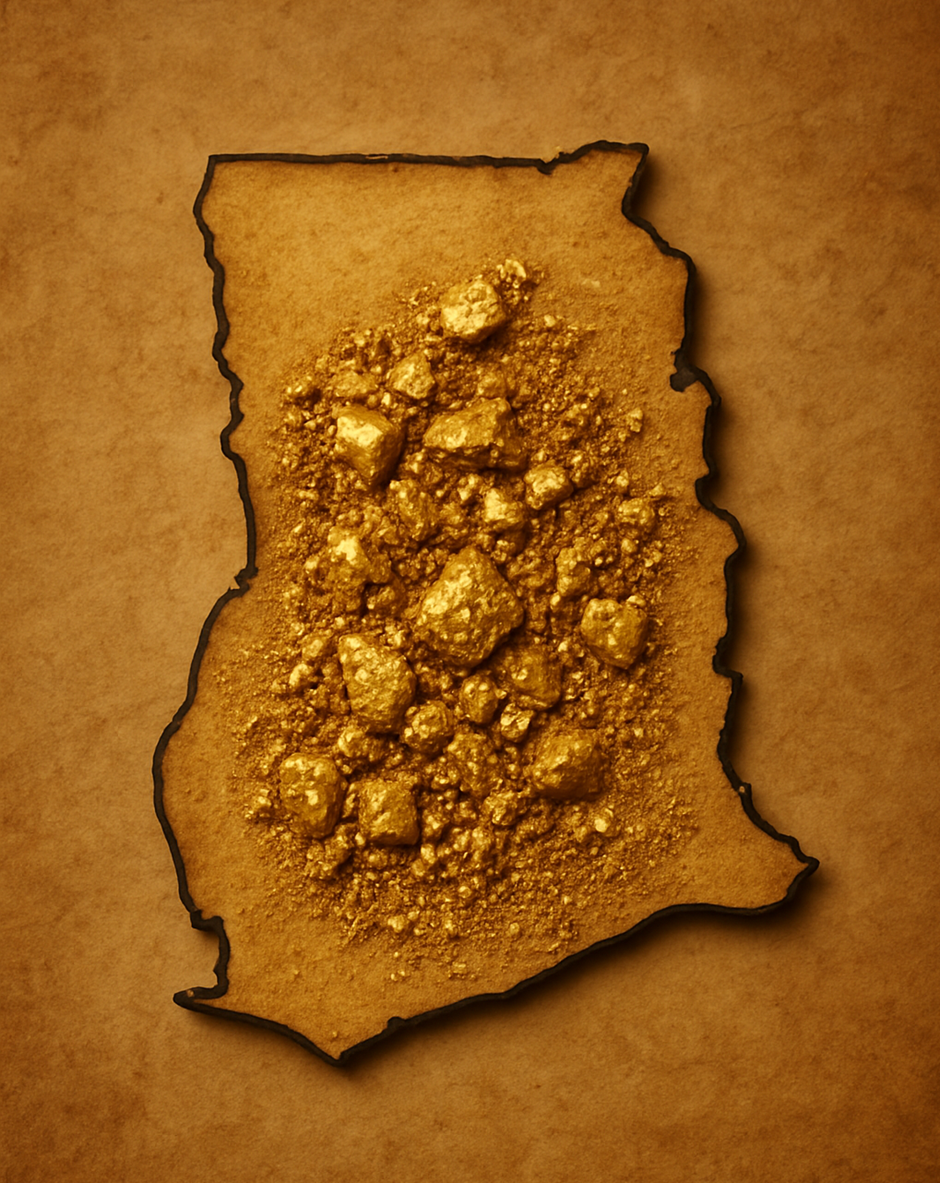Gold is having a moment — and so is Ghana. Global prices for gold have soared past US$4,000 per ounce this year, giving Ghana, Africa’s top gold producer, its biggest export opportunity in years. The country’s gold sector has frequently made headlines in 2025, thanks to key policy reforms and record-breaking export revenues. These developments have strengthened the industry, making it a vital force behind Ghana’s growing economic resilience.
Ghana’s Year in Gold So Far
Ghana is experiencing a record-breaking year in gold export revenues. Between January and mid-October 2025, the country earned over US$8 billion from small-scale mining gold exports alone — nearly double the US$4.61 billion earned in 2024.
This surge in revenue is driven by the export of more than 81,700 kilograms of gold, marking a significant increase in both volume and value compared with previous years.
Total gold production is projected to exceed five million ounces by the end of 2025 — a rise of more than 6% year-on-year.
Several key factors are driving this remarkable performance:
- The creation of the Ghana Gold Board (GoldBod), which centralises and regulates artisanal gold trading.
- Sustained high global gold prices, which have boosted Ghana’s export earnings, strengthened foreign reserves, and helped stabilise the cedi.
- The introduction of policy reforms has brought tighter government oversight that has improved gold traceability and reduced smuggling across the supply chain.
Combined, these measures have increased transparency, boosted investor confidence, and ensured that more of the gold’s value is retained within Ghana’s economy.
The Price Surge in Gold and What It Means
The recent rise in global gold prices has been a major boost for Ghana. Higher prices mean the government is earning more from exports, while investors are showing renewed confidence in the mining sector.
Analysts expect the revenue surge to help ease Ghana’s debt pressures and strengthen its foreign exchange reserves. As of October 2025, Ghana has earned over US$8 billion from small-scale gold exports alone — almost double last year’s total. This reflects not just higher prices but also improved regulation and oversight in the sector.
While Ghana continues to export much of its gold in raw form, these strong revenues provide a solid foundation for future economic growth and stability.
The Galamsey Problem That Won’t Go Away
Despite these gains, illegal gold mining — widely known as galamsey — remains a major challenge. It continues to scar the land, pollute rivers, and drain potential revenue. Reports this year show that many communities in mining regions remain caught between survival and destruction, with little progress on enforcement.
It’s a paradox: at a time when gold is more valuable than ever, Ghana is still losing significant value through illegal and unregulated operations.
The government has shown renewed commitment to tackling the issue in 2025. The Illegal Mining Enforcement Task Force was reactivated this year, leading to the shutdown of over 150 illegal mining sites and the arrest of more than 300 offenders.
Hopefully, these measures — and others to follow — will move beyond short-term fixes and lead to lasting progress towards a safer, more transparent mining sector.
So What’s Next for Ghana?
Ghana’s gold boom is something to celebrate, but what really matters is what comes next. The real test will be how well the country manages this momentum. Can Ghana keep the industry transparent, use the revenue wisely, and invest in ways that create lasting opportunities? These are the questions that will shape the future.
Building more value at home — through refining and manufacturing — could transform gold from just an export commodity into a true engine for growth. And as the fight against illegal mining continues, the hope is that these efforts will not only address today’s problems but also help build a fairer, safer mining future for everyone.
About the Author:
David Nii Armaah is a tech researcher and industry commentator with expertise in data, innovation, and digital entrepreneurship. Connect on LinkedIn: David Nii Armaah.

DISCLAIMER: The Views, Comments, Opinions, Contributions and Statements made by Readers and Contributors on this platform do not necessarily represent the views or policy of Multimedia Group Limited.
DISCLAIMER: The Views, Comments, Opinions, Contributions and Statements made by Readers and Contributors on this platform do not necessarily represent the views or policy of Multimedia Group Limited.
